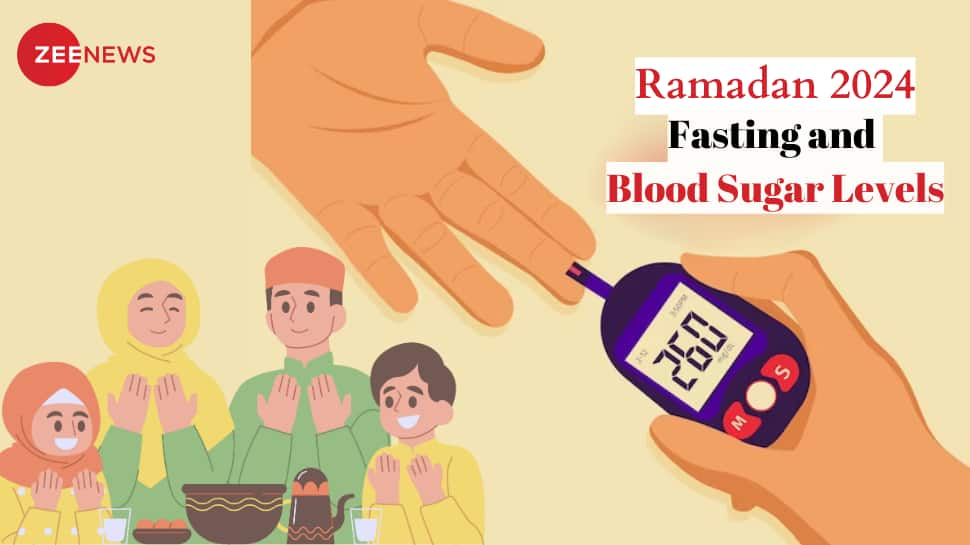Preparing your body and mind for fasting during Ramadan involves several important steps. If you typically have irregular sleep patterns, it’s advisable to gradually adjust your schedule beforehand to align with the fasting hours. Additionally, reducing caffeine intake and quitting smoking, if applicable, can help ease the transition. Hydration is crucial, so starting a week prior, ensure you’re drinking enough fluids. Engaging in light activities like walking or meditation can aid in managing fasting days more comfortably.
How Fasting Impacts Your Blood Sugar Levels?
Fasting can have significant impacts on blood sugar levels. During fasting, especially for extended periods, the body’s glucose reserves are depleted, leading to lower blood sugar levels. This can be particularly concerning for individuals with diabetes, as their bodies may struggle to maintain normal blood sugar levels without regular food intake.
Additionally, when fasting ends, such as during the evening meal (Iftar) in Ramadan, there can be a rapid increase in blood sugar levels, especially if large quantities of high-carbohydrate or sugary foods are consumed. This spike can be challenging for individuals with diabetes to manage, potentially leading to hyperglycemia.
Dr Piyush Lodha, Endocrinologist, Diabetologist, General Physician, Ruby Hall Clinic, Pune shares simpel and easy ways you can keep a track of your blood sugar levels throughout the day without hampering your health. He says, “For individuals with diabetes, it’s essential to consult with a healthcare provider to make necessary adjustments to medications and insulin doses.”
10 Ways You Can Manage Your Blood Sugar Levels While Fasting
It’s essential to strike a balance between fasting practices and maintaining stable blood sugar levels to prevent complications and ensure overall health and well-being. Here is how:
– Monitor blood sugar levels more frequently during fasting.
– Be aware of signs of both low and high blood sugar.
– Control portion sizes of carbohydrate-containing foods.
– Optimize nutrition during Suhoor and Iftar meals.
– Prioritize hydration and include adequate protein, vitamins, and minerals.
– Consume a balanced pre-dawn meal with dairy, fresh vegetables, fruits, and whole grains.
– Avoid overeating during Iftar to avoid feeling bloated.
– Manage fluctuating temperatures during fasting, particularly in warmer climates.
– Stay mindful of hydration levels.
– Seek medical attention if body temperature extremes occur.
Dr Piyush concludes, “Fasting during Ramadan offers various health benefits beyond fulfilling religious duties. It can boost immunity, aid in weight loss, improve metabolism, and enhance insulin sensitivity, leading to better blood sugar and blood pressure control.”




